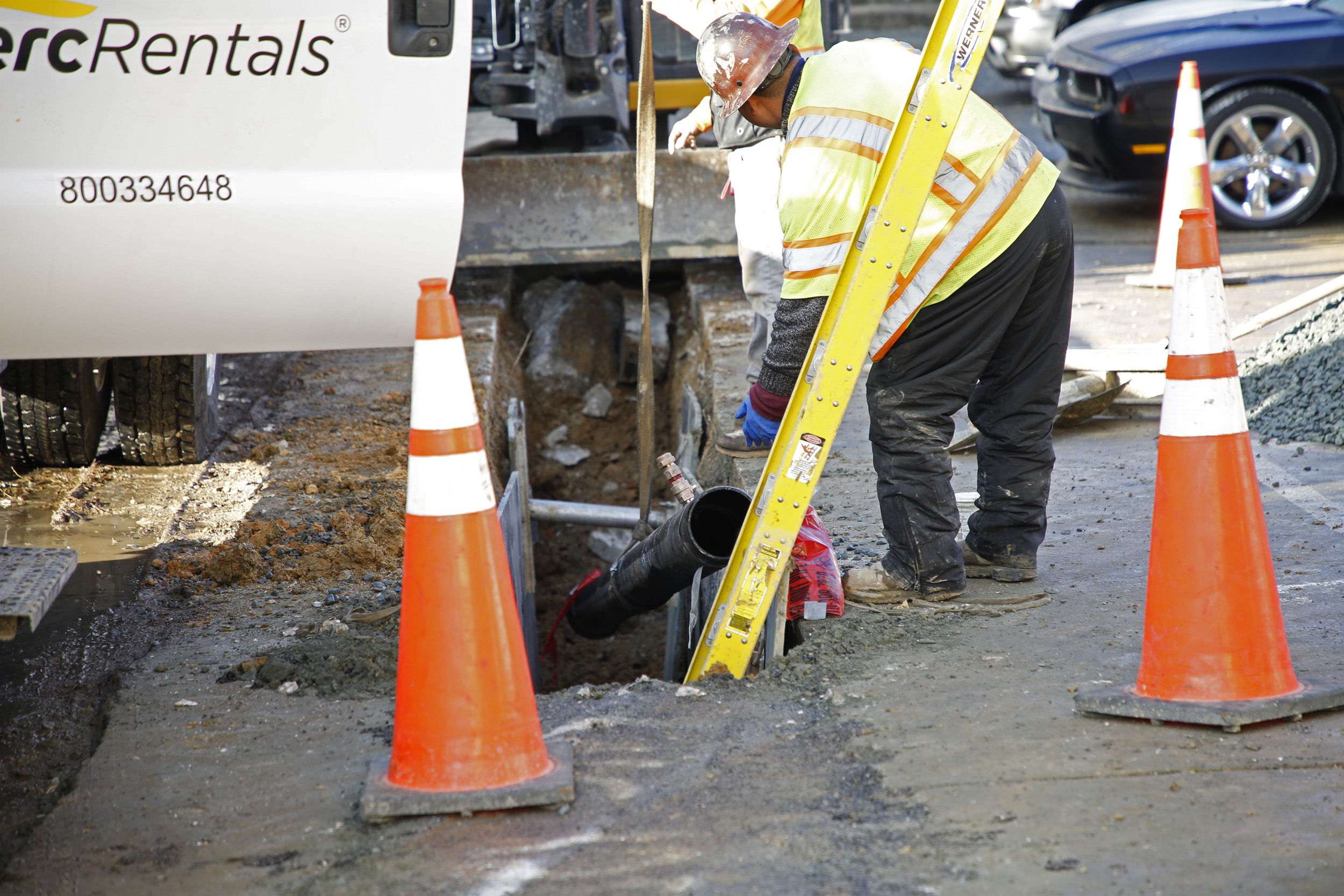BALTIMORE — For Gloria Johnson, getting water that she trusts is an ordeal. Every month, the mother of two boils gallons of tap water for her family to drink and cook with. Though Baltimore’s drinking water meets federal safety standards, the water coming out of her tap is sometimes brown — a sign iron may be leaching from aging pipes, whether in her building or under the street.
“You’re helping your kids with homework, cooking, trying to get ready for bed,” Johnson said.
“It’s frustrating because we’ve got to keep up with this every single day.”
As federal investment in water infrastructure has dwindled over the years, the infrastructure in America’s cities for drinking, waste and stormwater has deteriorated. That was made evident last September in Baltimore, when tests revealed the presence of E. coli in the drinking water in three sites in West Baltimore, a predominantly Black and low-income area. City officials determined the contamination was caused by a cascade of infrastructure failures.
The federal government has “waited too long” to invest in water infrastructure, U.S. Environmental Protection Agency Administrator Michael Regan told NBC News in an interview. “Unfortunately, there are certain populations in this country, Black and brown communities, tribal communities, low-income communities, that are seeing the worst aspects of this disinvestment.”
Last year, the EPA granted Maryland $144 million to finance water infrastructure projects across the state as part of the Bipartisan Infrastructure Law, which set aside more than $50 billion to improve drinking, waste and stormwater infrastructure across the country. The EPA also announced that Baltimore, a city that is more than 60 percent Black, would receive more than $390 million to finance water infrastructure projects.
Regan, who has spent the past year visiting communities struggling with water infrastructure crises — including in Alabama, Mississippi and West Virginia — acknowledged that the need is much greater.
“The resources that we have from the bill are just a shot in the arm,” he said, adding that the nation needs billions more in public and private investment to fully modernize vulnerable water systems.
“No community should ever experience what Flint [Michigan] experienced,” he said. “No community should ever experience what Jackson, Mississippi, is experiencing right now. We do have to have a proactive strategy to prevent cities from getting to that point.”
‘I’m scared to give it to my kids’: Baltimore’s water
issues are symptoms of a growing national problem




